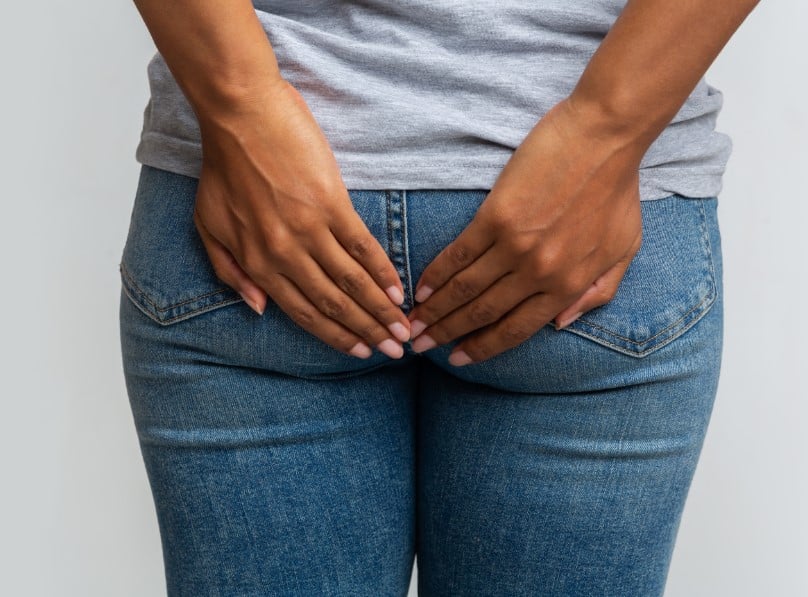It is not uncommon for some pregnant women to experience changes in their bowel movements. This is because hormonal changes, dietary changes, and uterine pressure can all contribute to digestive issues during pregnancy, including constipation. As a result, having a conversation about pregnancy poop is really important while expecting.
Yes, pregnancy poop is not the most exciting subject to discuss. However, knowing what to expect can reduce the element of surprise and alleviate anxiety when the unexpected occurs.
In this article, you will learn about bowel movements and their effect on pregnancy poop. Keep reading to learn more!
Bowel movement during pregnancy
Interestingly, the first thing to note about pregnancy poop is that there may be times when it just doesn’t come.
Yes, constipation is a common complaint during pregnancy and hormonal changes in the body cause it. Progesterone, an essential hormone for maintaining a healthy pregnancy, can cause the muscles in the digestive tract to relax, leading to slower movement of food through the intestines.
Constipation symptoms include hard, dry stools, bloating, and straining. Experiencing gas or stomach pain is likely the last thing anyone would want to deal with while pregnant.

The good news is that constipation can be taken care of. Drink plenty of fluids, particularly water, to soften stools and make them easier to pass. In addition, increase fiber intake; this includes eating more fruits and vegetables.
Constipation is not only physically unpleasant, but it can also cause strain. Small rectal tears (fissures) or swollen veins can result from this (hemorrhoids). Both can cause rectum bleeding, usually a small amount of blood that appears pink or bright red.
Anal fissures and hemorrhoids can heal on their own. However, to avoid the occurrence of new ones, avoid constipation and avoid straining.

Causes of changes in bowel movements during pregnancy
Some of the most common causes include:
- Hormonal changes: As mentioned before, hormonal changes during pregnancy can cause the muscles in the digestive tract to relax, leading to slower food movement through the intestines.
- Prenatal vitamins: Some prenatal vitamins can cause constipation due to their high iron content.
- Dehydration: Not drinking enough fluids can cause constipation.
- Diet: Eating a diet low in fiber or high in processed foods can contribute to constipation.
- Pressure on the intestines: As the uterus expands, it can put pressure on the intestines, leading to changes in bowel movements.
- Medications: Some medications can cause constipation or diarrhea as a side effect.
- Stress and anxiety: Stress and anxiety can impact the digestive system, leading to changes in bowel movements.
However, straining to open the bowels is one of the most significant risk factors for long-term pelvic floor issues such as incontinence, prolapse, and hemorrhoids.
The pelvic floor is already weakened during pregnancy due to the impact of hormones on the tissues preparing it for birth. Pressure is intense from the baby’s weight passing through the pelvic floor all day, so extra straining caused by constipation or poor bowel habits is the last thing a pelvic floor needs.
Unusual poop colors
Of course, just like urine color changes, the color of stools can change during pregnancy. Normal stools are light to dark brown, but your poop may turn green during pregnancy.
Prenatal vitamins and iron supplements are known to change the color of poop from brown to green. If you take an antibiotic while pregnant, you may experience green bowel movements.
Although food dyes can darken stools, a dark color can also indicate bleeding in your digestive tract. During pregnancy, very dark stools are also possible. If you notice black or tarry poop, contact your doctor.
What to do to poop properly
- Stay hydrated: Drink plenty of water throughout the day to keep stools soft and easy to pass.
- Eat a fiber-rich diet: Include plenty of fruits, vegetables, whole grains, and legumes to help keep bowel movements regular.
- Exercise regularly: Regular physical activity can help stimulate the digestive system and promote regular bowel movements.
- Take prenatal vitamins: Many prenatal vitamins contain iron, which can contribute to constipation. To help counteract this, ensure you’re getting enough fiber and fluids in your diet.
- Talk to a healthcare provider: If you’re experiencing persistent constipation or other digestive issues during pregnancy, talk to your healthcare provider. They can recommend safe and effective treatments to help manage your symptoms.
- Using the toilet frequently and adequately: means using it as soon as you feel like you have to go, Do not let poop sit in your rectum and dry up, making it more difficult and hence more likely to strain.
Seating on a toilet seat instead of squatting like cavemen also causes strain in the toilet.
Here are steps to properly using the modern-day toilet during pregnancy:
Step 1: feel like using the toilet? GO!
Step 2: Get a small stool to put your feet on, and raise your knees as high as possible. Some clever tricks! If necessary, modify by standing on your toes or placing your feet on toilet paper rolls or a backpack.
Step 3: Maintaining a straight back, bring your upper body forward, so your pelvis tips forward. Place your elbows on your knees and relax.
Step 4: Breathe normally and resist the urge to hold your breath. It is critical to breathe and not hold your breath.
Step 5: If you require assistance, you can generate abdominal assistance by pushing your belly out (rather than straining in and out).
A Final Note on Pregnancy Poop
Pregnancy poop may not be something you want to discuss, but it is something you must consider.
Pregnancy can affect every part of your body, so expect some changes in your bowels as well. Remember that every pregnancy is unique. The key is anticipating changes so you know when they occur.
Finally, you should consult your doctor if you notice blood in your stool during pregnancy. They will be able to assist in determining the cause.

